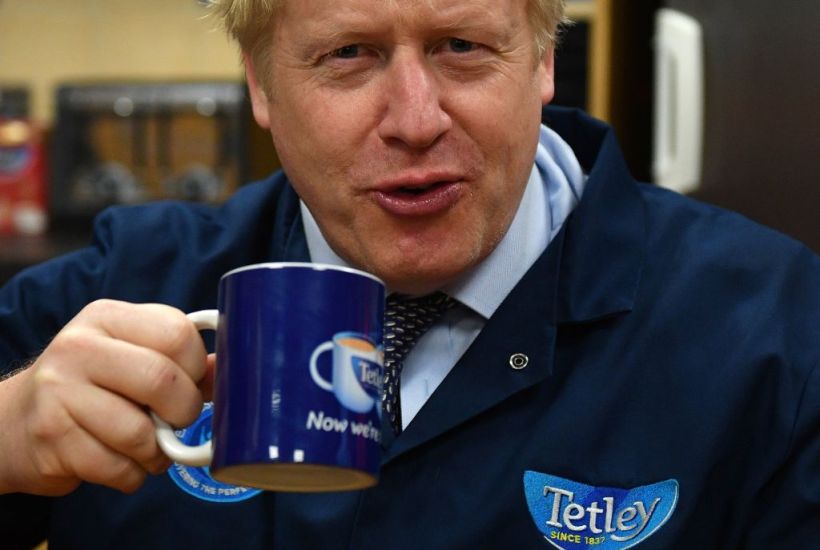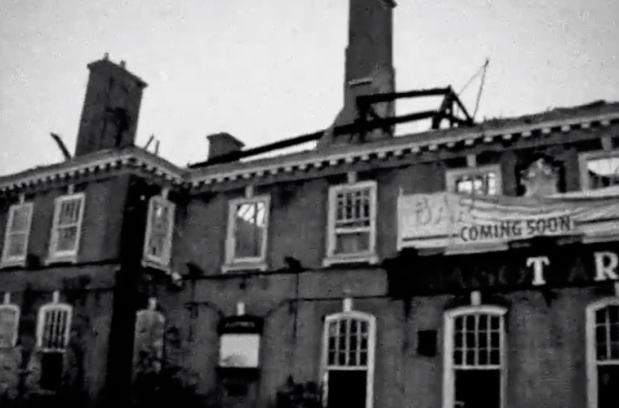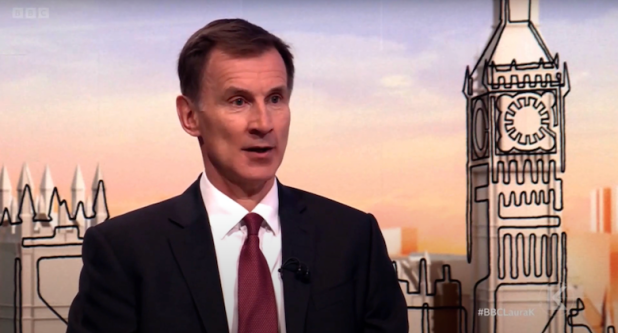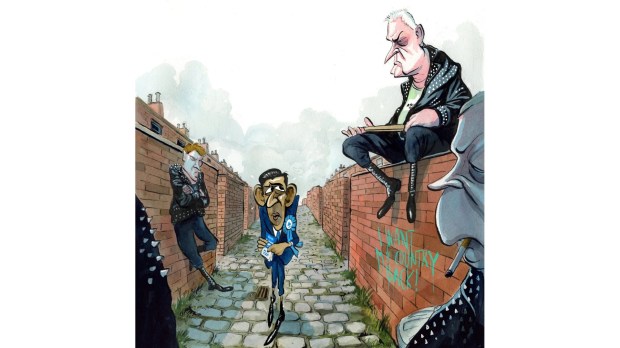“I am not a manual labourer and please God I shall never be one, but there are some kinds of manual work that I could do if I had to. At a pinch, I could be a tolerable road-sweeper or an inefficient gardener or even a tenth-rate farmhand. But by no conceivable amount of effort or training could I become a coal-miner; the work would kill me in a few weeks.”
George Orwell wrote these words in ‘The Road to Wigan Pier’. But I’ll always remember them from a speech my grandfather gave to members of his former mining community who had gathered to celebrate the death of Margaret Thatcher on a hazy spring evening in 2013. Yet six years on – for the first time in his life at the age of 89 – he voted Conservative, becoming one of many ‘Red Wall’ voters to turn their backs on Labour. So what changed?
Certainly not my grandfather’s dislike of Thatcher who, despite her success, is still to this day scorned in communities across much of the north. Indeed hatred towards the Conservative party in places like Wigan, where I grew up, is passed down through the generations as if it were a family heirloom. This feeling is deep-rooted; many northern people still do not trust the Conservatives.
Nevertheless, this month’s election was a watershed moment. My grandfather, who picketed alongside the likes of Arthur Scargill went out and voted for Boris Johnson’s Conservative party. It is almost incomprehensible to believe that the people my grandfather addressed as they burned an effigy of Thatcher six years ago went out in their hundreds and voted Conservative too. If anybody had suggested this would happen just five years ago, you would’ve been chased out of the local labour club.
It’s astonishing to see working-class communities, such as Leigh where my grandfather lives, switch from backing Labour to electing Conservative MPs seemingly overnight. But this transition should not come as a huge shock; it had been coming for several years, only too few people noticed the signs.
Many Labour MPs were indeed taken aback, reacting in shock and anguish at the result, quickly rushing to the conclusion that Labour’s annihilation was simply due to its wobbly Brexit policy. They’re wrong: declining support for Labour within working-class communities can be attributed to much more than Brexit.
The Brexit vote was, of course, a cry for change. Years of austerity and chronic underfunding of infrastructure and local services lead many working-class voters to reject the status quo. They wanted change and they wanted to see it immediately.
Ever since the Brexit vote in 2016, people like my grandfather (who voted Leave) have been ridiculed, undermined and called racist and stupid. Most of these insults came from those of the left; rather than trying to understand my grandfather’s concerns, the Labour party abandoned their traditional voting base and showed nothing but contempt towards people like him.
On December 12, much of the working class responded: by abandoning Labour and rallying to support the Conservatives in overwhelming numbers.
Supporting the Conservatives would have once seen you exiled from certain communities in the north. No longer. While some of those on the left would have you believe that the working class can only be represented by Marxist economic policies, this couldn’t be further from the truth. Having grown up in a working-class community (my mum is a cleaner and my dad a labourer) it is clear that at the heart of these communities is a strong entrepreneurial tendency. This stands in stark contrast to the policies which Labour claim advance the welfare of people like me.
So while my grandfather was (and is) ferociously against Thatcher, he was a man who is proud of the money he earned for his family. He is also proud to have used his savings to buy his own house: a council property he acquired through Thatcher’s right-to-buy scheme.
This might make him a man of intrigue to political commentators. Despite his participation in ten-week strikes, he continued to take advantage of Conservative policy. Yet it isn’t so surprising, for a simple reason that Jeremy Corbyn failed to grasp: the ambition of many in the working class is to make their own lives better while promoting the overall wealth of a country that they love and call home.
Instead Labour adopted the politics of envy and the result was unanimous. This election saw voters in constituencies that had never voted Conservative before abandoning tribal and outdated party loyalties. Why? Because people are hungry for change and they are fed up of being ‘represented’ by Marxist intellectuals.
Boris Johnson’s Conservative party represented the wishes of blue-collar voters with simple common-sense policies: protecting the NHS, strengthening law and order, improving transport infrastructure across the north and, of course, listening to voters by promising to deliver Brexit.
Yet Boris is right not to take these voters for granted. Despite strong levels of support among the working class at the moment, blue-collar trust in the Conservative party remains fragile. The demographics of Conservative supporters have changed exponentially at the election. The Conservative party now has no choice but to represent the working class from this day forward. If it fails to do this – or fails to live up to expectation – then these areas will simply revert to traditional voting allegiances. With Corbyn gone, that is a move that will be made easier for them.
Conservatives should also know that even among many of those who backed them earlier this month, the dislike of Thatcher remains intense in parts of Britain. Many Conservative voters who do venerate Thatcher and her legacy naturally disagree with this verdict on the Iron Lady. But they should know that it is vital that the Tories capitalise on a chance to rebrand themselves and broaden their appeal to a whole new base of supporters if they are to retain power for years to come. If they do, the rewards are certainly worthwhile: if constituencies like Leigh and Bishop Aukland can turn blue, then there is no reason why Tories can’t take the whole of the north at the next election, reducing Labour to our cities.
Boris can help the Tories redraw Britain’s political landscape forever. If he is to do so, the party will need to maintain the vote of people like my grandfather; a man who has worked his entire life and has little to show for it; a man who contributed to the rebuilding of our country following the Second World War; a man who has paid his taxes and helped to make this country what it is today; and a man who hated Thatcher but couldn’t bear to vote for Jeremy Corbyn, voting for Boris Johnson instead. It is people like him who deserve to be listened to. The Conservatives won the election because they did just that. Let’s hope they remember that.
Robert Langley is a politics student at King’s College London. He is originally from Wigan
Got something to add? Join the discussion and comment below.
Get 10 issues for just $10
Subscribe to The Spectator Australia today for the next 10 magazine issues, plus full online access, for just $10.




















Comments
Don't miss out
Join the conversation with other Spectator Australia readers. Subscribe to leave a comment.
SUBSCRIBEAlready a subscriber? Log in